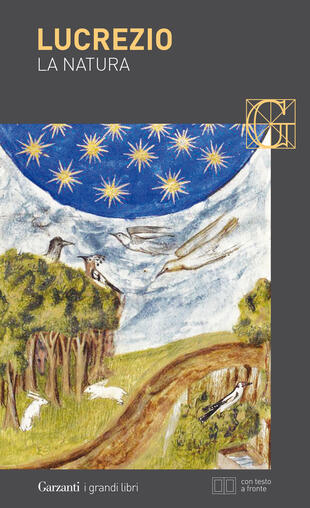La natura
Tutti i formati dell'opera
Acquistalo
Sinossi
Con testo a fronte
A cura di Francesco Giancotti
Nel De rerum natura, pubblicato postumo da Cicerone intorno al 53 a.C., Lucrezio consegna alla posterità una fedele esposizione del materialismo epicureo, fonte essenziale per la riscoperta di questa dottrina a partire dal Quattrocento. Spaziando dall’infinitesimo all’infinito, il poeta ripercorre nei termini della fisica atomistica la genesi dell’universo e la storia dell’umanità. Ma soprattutto canta il coraggio intellettuale di Epicuro e la sua filosofia liberatrice, capace di emancipare l’uomo da desideri vani, false superstizioni, paure infondate, prime fra tutte l’angoscia della morte e il timore degli dei. Il poema si apre con una invocazione a Venere, simbolo della voluptas, l’energia genitrice che pervade la natura, e si chiude con la descrizione della peste di Atene: vita e morte sono i due poli dialettici non solo della realtà, ma anche della poetica di Lucrezio che sottopone la materia filosofica a una forte tensione emotiva e immaginativa. Filtrato da una dolente coscienza della condizione umana, il razionalismo epicureo assume in Lucrezio accenti drammatici, specchio dei suoi tormenti di genio solitario della letteratura latina.
- ISBN: 8811365228
- Casa Editrice: Garzanti
- Pagine: 656
- Data di uscita: 28-06-2002



